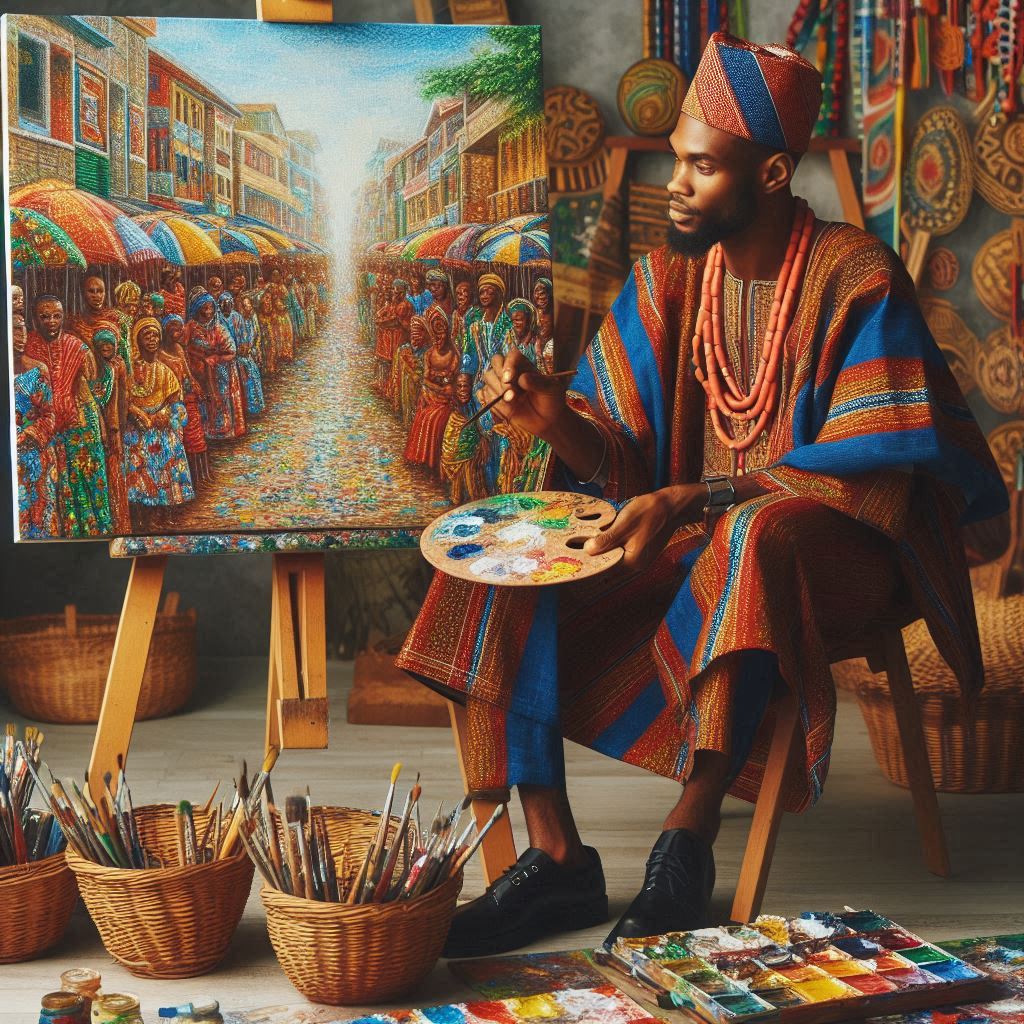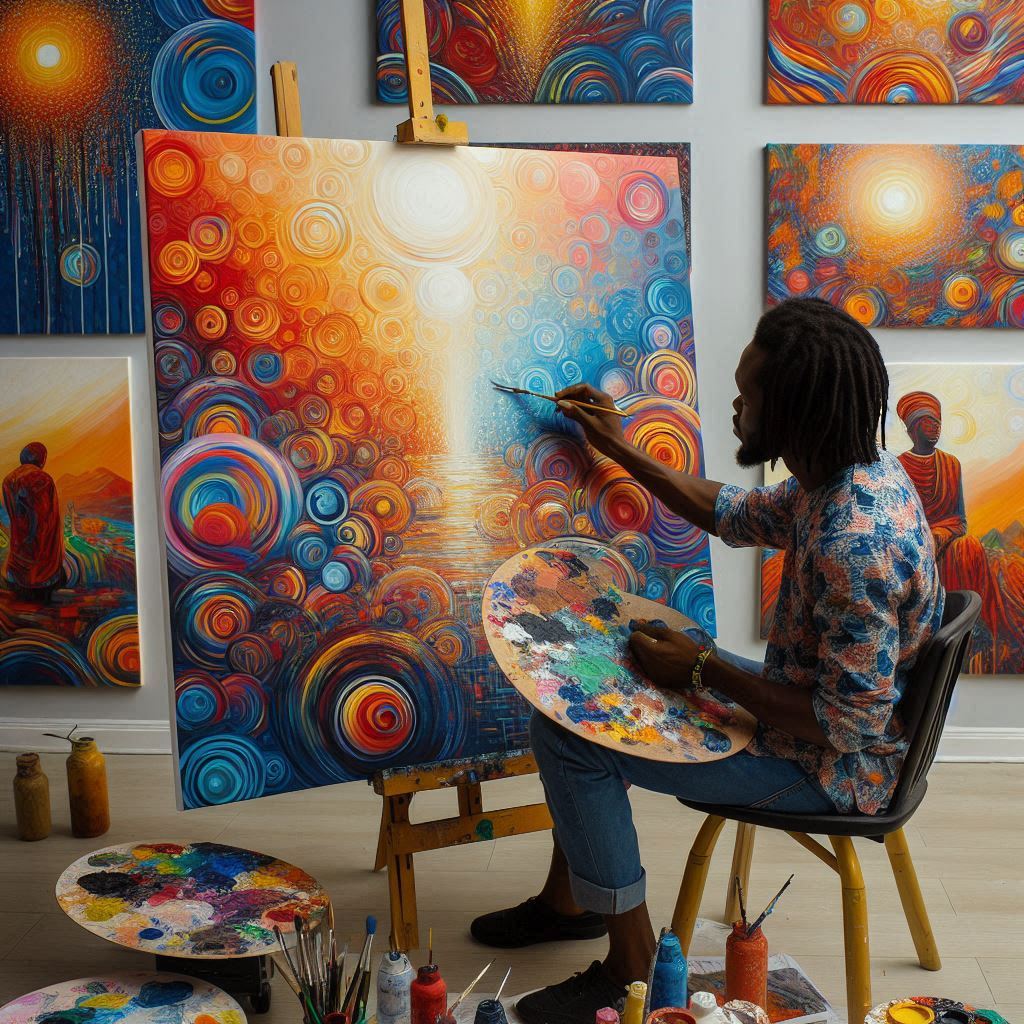Introduction
The influence of culture on religion in Nigeria is a complex and multifaceted phenomenon that profoundly shapes the religious landscape of the country.
Renowned for its rich cultural diversity, Nigeria boasts over 250 ethnic groups, each with unique customs, languages, and traditions.
Diversity permeates Nigeria’s religious beliefs and practices. It’s a melting pot of faiths: Christianity, Islam, traditional African religions, and indigenous systems.
Religion in Nigeria is deeply intertwined with culture, as beliefs and practices are often influenced and shaped by the cultural context in which they exist.
Indigenous cultures actively shape religious beliefs, seamlessly integrating traditional practices into mainstream religions like Christianity and Islam.
This fusion of traditional and imported religious elements has given rise to unique syncretic forms of worship that reflect the country’s diverse cultural heritage.
The impact of culture on religion is evident in various aspects of Nigerian society, including religious festivals, rites of passage, marriage customs, and moral values.
These cultural influences not only shape the way religion is practiced but also influence the interpretation of religious texts and the formulation of religious doctrines.
Additionally, cultural factors such as language, music, art, and folklore play a crucial role in the expression and transmission of religious beliefs and teachings.
Culture’s dynamic nature drives the evolution of Nigeria’s religious practices. They adapt to shifting social, political, and economic landscapes.
Nigeria actively wrestles with modernization and globalization. Socio-cultural transformations are also underway.
Culture and religion’s interplay sparks continuous debates and investigations.
We must grasp culture and religion’s complex interplay. It’s crucial for understanding Nigeria’s religious dynamics. This knowledge enriches our appreciation of Nigeria’s cultural heritage.
In the following sections, we will delve deeper into specific examples of how culture influences religious beliefs, practices, and institutions in Nigeria.
History of Religion in Nigeria
Historical development of various religions in Nigeria
Nigeria’s religious landscape is rich and diverse, evolving over centuries.
Indigenous belief systems were dominant pre-colonization, reflecting ethnic diversity.
Islam gained ground through trade routes, especially in the northern regions.
Christianity’s roots trace back to European colonialism, notably British and Portuguese influences.
Traditional African religions, such as Yoruba and Igbo, remain significant, blending with newer faiths.
Each religion contributed to Nigeria’s cultural fabric, shaping identities and practices.
Impact of colonization on religious beliefs and practices
Colonial powers imposed Christianity, often as a tool for control and conversion.
Islamic regions faced similar pressures, albeit to a lesser extent, from British rule.
Conversion efforts disrupted indigenous beliefs, leading to syncretism and cultural clashes.
Education systems promoted Christianity, influencing generations and societal structures.
Christian missions also provided healthcare and education, affecting social development.
Colonial legacy continues to shape religious dynamics and power structures today.
How indigenous religions have been influenced by external forces
Indigenous belief systems adapted to external pressures, blending with incoming religions.
Islamic influences introduced new practices and beliefs, particularly in the north.
Christianity’s spread led to syncretism, with indigenous rituals merging with Christian elements.
Missionary efforts often demonized traditional practices, leading to their marginalization.
Globalization further impacted indigenous religions, exposing them to new ideas and challenges.
Despite external influences, indigenous religions persist, offering resilience and cultural continuity.
In review, Nigeria’s religious history is a tapestry of diverse beliefs shaped by internal and external forces.
From indigenous practices to the impacts of colonization and globalization, religion in Nigeria reflects a complex interplay of culture, tradition, and outside influences.
Read: How to Get Involved in Nigerian Community Theatre
Cultural Diversity in Nigeria
The rich cultural heritage of Nigeria, including traditional customs and practices
Nigeria is a country known for its diverse cultural landscape, with over 250 ethnic groups coexisting harmoniously.
Each ethnic group in Nigeria has its unique cultural traditions that have been passed down through generations.
Different ethnic groups in Nigeria and their unique cultural traditions
The Yoruba people, for example, are known for their elaborate masquerades and festivals that celebrate different deities.
These cultural practices are deeply intertwined with their religious beliefs and play a significant role in shaping their worldview.
Similarly, the Hausa-Fulani people have a rich cultural heritage that is reflected in their traditional architecture, music, and cuisine.
Transform Your Career with Expert Guidance
Get personalized mentorship consulting that’s tailored to your unique path. Our expert advice is actionable and exclusive.
Get StartedThese cultural elements are closely connected to their Islamic faith, which is the predominant religion in the northern region of Nigeria.
The Igbo people, on the other hand, have a vibrant cultural tradition that is evident in their colorful festivals and artistry.
Their cultural practices are closely linked to their traditional religion, which worships a pantheon of deities and ancestors.
How culture plays a significant role in shaping religious beliefs
Culture in Nigeria not only influences religious beliefs but also serves as a unifying force among different ethnic groups.
Despite the diversity of cultures in Nigeria, there is a sense of national identity that is forged through shared values and traditions.
The cultural diversity in Nigeria is evident in the various traditional customs and practices that are observed by different ethnic groups.
These customs often have religious significance and are deeply ingrained in the societal fabric of Nigeria.
Furthermore, the different ethnic groups in Nigeria each have their unique languages, dance forms, and artistic expressions that reflect their cultural identity.
These cultural expressions are intertwined with their religious beliefs and serve as a means of preserving their heritage.
In fact, the influence of culture on religion in Nigeria is profound and multifaceted.
The rich cultural diversity in the country shapes religious beliefs and practices, creating a unique tapestry of traditions that reflects the unity amidst diversity in Nigeria.
Read: Sociology and Nigerian Cultural Studies: An Interplay
Syncretism in Nigerian Religion
Definition of Syncretism and its Relevance in Nigeria
Syncretism is the blending of different religious beliefs or practices into a new unified system.
In Nigeria, syncretism plays a crucial role in the religious landscape.
Examples of Syncretism in Nigerian Religious Practices
One example is the fusion of traditional African religions with Christianity or Islam.
Many Nigerians incorporate aspects of their indigenous beliefs into their Christian or Muslim practices.
Another example is the adaptation of Yoruba deities, such as Ogun or Sango, into Catholic saints.
This syncretic practice allows believers to maintain their cultural heritage while embracing a new faith.
Implications of Syncretism on the Nigerian Religious Landscape
Syncretism has both positive and negative implications for Nigerian society.
On one hand, it fosters a sense of cultural continuity and allows for the preservation of traditional customs.
On the other hand, syncretism can lead to theological confusion and inconsistencies within religious practices.
It may also create tensions between orthodox religious authorities and syncretic believers.
Overall, syncretism in Nigerian religion reflects the country’s rich cultural diversity and the adaptability of its religious traditions.
It continues to shape the spiritual beliefs and practices of millions of Nigerians across different faiths.
Read: Role of Religion in Nigerian Historical Context

Influence of Culture on Religious Festivals
Major religious festivals celebrated in Nigeria
Nigeria, a diverse country with over 250 ethnic groups, boasts a plethora of religious festivals that reflect its rich cultural tapestry.
From the bustling streets of Lagos to the serene villages of the north, these festivals bring communities together in vibrant displays of faith and tradition.
The Eid al-Fitr marks the end of Ramadan, celebrated by Muslims nationwide with prayers, feasting, and acts of charity.
Christmas, observed by Christians, transforms cities into wonderlands of lights and carols, echoing the joy of the birth of Jesus Christ.
How cultural elements are incorporated into these religious celebrations
In Nigeria, religious festivals are not just about spiritual devotion but also serve as platforms for cultural expression.
During Eid al-Fitr, families adorn themselves in traditional attire, prepare sumptuous local delicacies, and exchange gifts, blending religious rituals with indigenous customs.
Nigerian Christmas festivities infuse indigenous dances, music, and dramas, depicting biblical stories in local settings.
This adds a distinct Nigerian flavor to the global celebration of Christ’s birth.
Significance of these festivals in promoting cultural and religious unity
These festivals play a pivotal role in fostering unity among Nigeria’s diverse populace.
Regardless of religious affiliation, Nigerians come together to celebrate, transcending ethnic and religious divides.
They serve as catalysts for interfaith dialogue and understanding, as people from different backgrounds converge to partake in each other’s festivities, fostering mutual respect and tolerance.
Moreover, these festivals provide an opportunity for Nigerians to showcase their cultural heritage to the world, promoting tourism and fostering a sense of national pride.
Culture profoundly influences religious festivals in Nigeria, shaping faith practices and fostering unity, diversity, and collective celebration.
Read: Religious and Cultural Studies Job Market in Nigeria
Gender Roles in Nigerian Religion
Roles of men and women in different religious traditions in Nigeria
Exploring the roles of men and women in different religious traditions in Nigeria reveals a complex interplay between culture and religion.
In traditional African religions, men often hold positions of power and authority within religious practices.
Women, on the other hand, may be relegated to supporting roles or roles that are considered less prestigious.
How cultural expectations influence gender dynamics within religious communities
Cultural expectations often influence the division of gender roles. They dictate society’s appropriate roles for men and women.
Within Christianity in Nigeria, gender dynamics can vary depending on the denomination and leadership structure.
Some churches may uphold traditional gender roles, while others may promote gender equality within the church.
Cultural expectations play a significant role in shaping these dynamics, with some communities adhering to traditional patriarchal values.
Disparities or inequalities based on gender in religious practices
In some cases, disparities and inequalities based on gender can be seen in religious practices.
For example, women may be excluded from leadership positions or may be subject to discriminatory practices.
Despite these challenges, there are also instances where women are active leaders and influential figures within religious communities.
These women often challenge traditional gender norms and work towards creating more inclusive spaces for all members.
Ultimately, the influence of culture on gender roles within Nigerian religion is a complex and multifaceted issue.
By examining how cultural expectations shape gender dynamics within religious communities, we can work towards creating more equitable and inclusive spaces for all individuals.
Challenges of Cultural Influences on Religion
Challenges faced by religious leaders in preserving traditional beliefs in a rapidly changing cultural environment
Religious leaders in Nigeria are constantly grappling with the challenges posed by the influence of culture on religion.
Rapid modernization and globalization in the country challenge and dilute traditional beliefs increasingly.
One of the major challenges faced by religious leaders is the preservation of traditional beliefs in the face of a rapidly changing cultural environment.
With the influx of Western ideas and values, many Nigerians are turning towards more modern practices and beliefs, often at the expense of their indigenous religious traditions.
How globalization and modernization have impacted indigenous religious practices
Globalization and modernization have also impacted indigenous religious practices in Nigeria.
As the world becomes more interconnected, traditional rituals and ceremonies are being replaced by more mainstream and universally accepted religious practices.
This shift has led to a loss of cultural identity and heritage among many communities.
Ways to address these challenges and maintain cultural authenticity in Nigerian religion
Nigerian religious leaders must balance tradition and modernity to maintain cultural authenticity in religion.
One potential way to achieve this is through education and awareness campaigns that highlight the importance of preserving traditional beliefs and practices.
Another way to maintain cultural authenticity is by adapting traditional rituals and ceremonies to fit into the modern context, without losing their essence.
This can involve incorporating elements of modern technology or communication tools into religious practices, while still respecting and honoring the traditions of the past.
Religious leaders hold the key to preserving Nigerian cultural authenticity by adapting to change while upholding tradition.
By finding a balance between tradition and modernity, they can ensure that the rich cultural heritage of Nigeria is passed down to future generations.
Conclusion
In Nigeria, culture deeply impacts religious beliefs and practices. The blending of traditional customs with Christianity and Islam is evident.
This fusion creates a unique spiritual landscape in the country.
Understanding the influence of culture on religion is crucial for fostering tolerance and respect among diverse groups.
It also sheds light on the complexities of belief systems and rituals in Nigeria.
Further research and dialogue on this topic are essential for promoting interfaith harmony and cultural preservation.
By exploring the intricate relationship between culture and religion, we can appreciate the richness of Nigeria’s spiritual heritage.
The interplay between culture and religion in Nigeria is dynamic and multifaceted. It shapes identities, values, and social interactions in profound ways.
Embracing this complexity is key to building a more inclusive and cohesive society.
Let’s continue to explore and engage with this fascinating intersection of culture and religion for a deeper understanding of Nigeria’s spiritual landscape.




